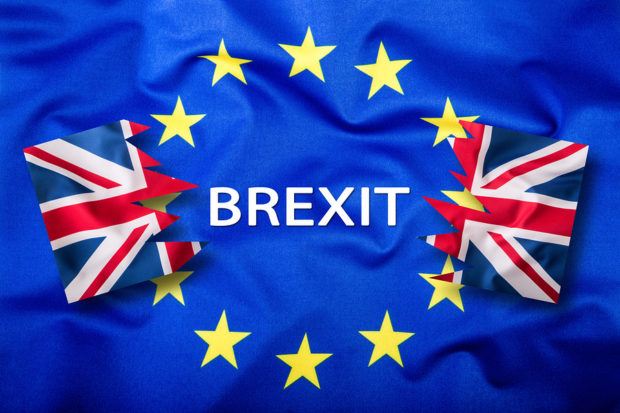U.K. Prime Minister Theresa May said she is weighing a plan that would keep the U.K. bound to European rules for longer, in an attempt to break the deadlock in talks.
May confirmed on Thursday that she was considering extending the 21-month transition — the grace period that’s due to kick in on Brexit day and maintain trading and market rules unchanged.
“A further idea that has emerged is to create an option that extends the implementation period for a matter of months,” May told reporters in Brussels on Thursday. “This is not expected to be used because we are working to ensure that we have the future relationship in place by the end of 2020.”
May signaled her willingness to give ground on transition during talks with fellow EU leaders at a summit in Brussels Wednesday. European Parliament President Antonio Tajani confirmed the issue was discussed between the 28 leaders.
The move, which would effectively prolong the terms of Britain’s EU membership, could come at a high political price in London, with the idea outraging Brexiteers in May’s Conservative Party.
“She is stalling,” Nadine Dorries, a pro-Brexit member of Parliament, said on Twitter. “It’s time to stand aside and let someone who can negotiate get on with it.” John Redwood, another hardliner, called it “completely nuts.”
Still, the idea was discussed on Tuesday during a meeting of May’s Cabinet in London, and International Trade Secretary Liam Fox — a veteran Brexiteer — was open to it, according to a person familiar with the situation.
November’s Off
At the meeting in Brussels, EU leaders decided that not enough progress has been made in negotiations to warrant calling a one-off summit in November for a divorce deal to be signed. Leaders, who made an effort to send positive messages on their way in, listened to May for about 15 minutes before having dinner without her. According to three government officials, at least some of them were left puzzled by her presentation.
Tajani said May had offered nothing new, though he thought her “body language” was positive. The EU is now aiming for the December summit to get the deal done, according to one of the officials, though the idea of a November meeting hasn’t been ruled out. Chief EU negotiator Michel Barnier said “much more time” was needed, and that he would continue working “calmly and patiently.”
New Barriers
Talks are stalled on the question of how to avoid a policed frontier between Northern Ireland and the Republic of Ireland, without erecting new barriers between Northern Ireland and the rest of the U.K.
The prime minister and her team are willing to consider the longer transition as a way to help overcome the Irish border issue. While it could help May sell a deal at home, it won’t remove the need to accept the most controversial part of the EU’s proposal — that in a last-resort situation, Northern Ireland could be split off from the rest of the U.K.
And one person familiar with the discussions said May’s Tory party would find it difficult to be fighting the next general election — due in 2022 — while the country is still inside the single market and customs union.
Why Ireland’s Border Is Brexit’s Intractable Puzzle: QuickTake
The EU hopes an extended transition will be enough to help May accept its plan for the Irish border, an official said. The plan is known as the backstop because it’s an insurance clause to make sure that no matter what future trading arrangement the two sides decide on, no new border will emerge on the island of Ireland.
The EU side is still insisting that the exit treaty include its proposed backstop. May says this new would destroy the constitutional integrity of the U.K., by putting a customs border between Northern Ireland and the British mainland.
Negotiators will try to find a form of words to say that as long as the transition is extended long enough for the U.K. and EU to agree a free trade deal, the backstop will never be used.
“We are working with EU to deal with this issue of ensuring that if there is a gap between the end of the implementation period and the point when the future relationship comes in – and we don’t expect a gap to exist — we want to ensure there’s no hard border between Ireland and Northern Ireland, ” May said.
But the devil is in the detail. There’s no guarantee the trade deal could be finalized in time and the EU would expect the U.K. to sign up to some kind of customs union. The terms of that, including whether the U.K. would have an independent trade policy, could only be agreed after the U.K. has left.





















 Large Scale Cargo Ring Busted in LA, $5M Recovered
Large Scale Cargo Ring Busted in LA, $5M Recovered  Focus on Ski Guides After Deadly California Avalanche Could Lead to Criminal Charges, Civil Suits
Focus on Ski Guides After Deadly California Avalanche Could Lead to Criminal Charges, Civil Suits  Viewpoint: Runoff Specialists Have Evolved Into Key Strategic Partners for Insurers
Viewpoint: Runoff Specialists Have Evolved Into Key Strategic Partners for Insurers  High Court Ruling on Trump Tariffs to ‘Ease Uncertainty,’ Says AM Best
High Court Ruling on Trump Tariffs to ‘Ease Uncertainty,’ Says AM Best 






